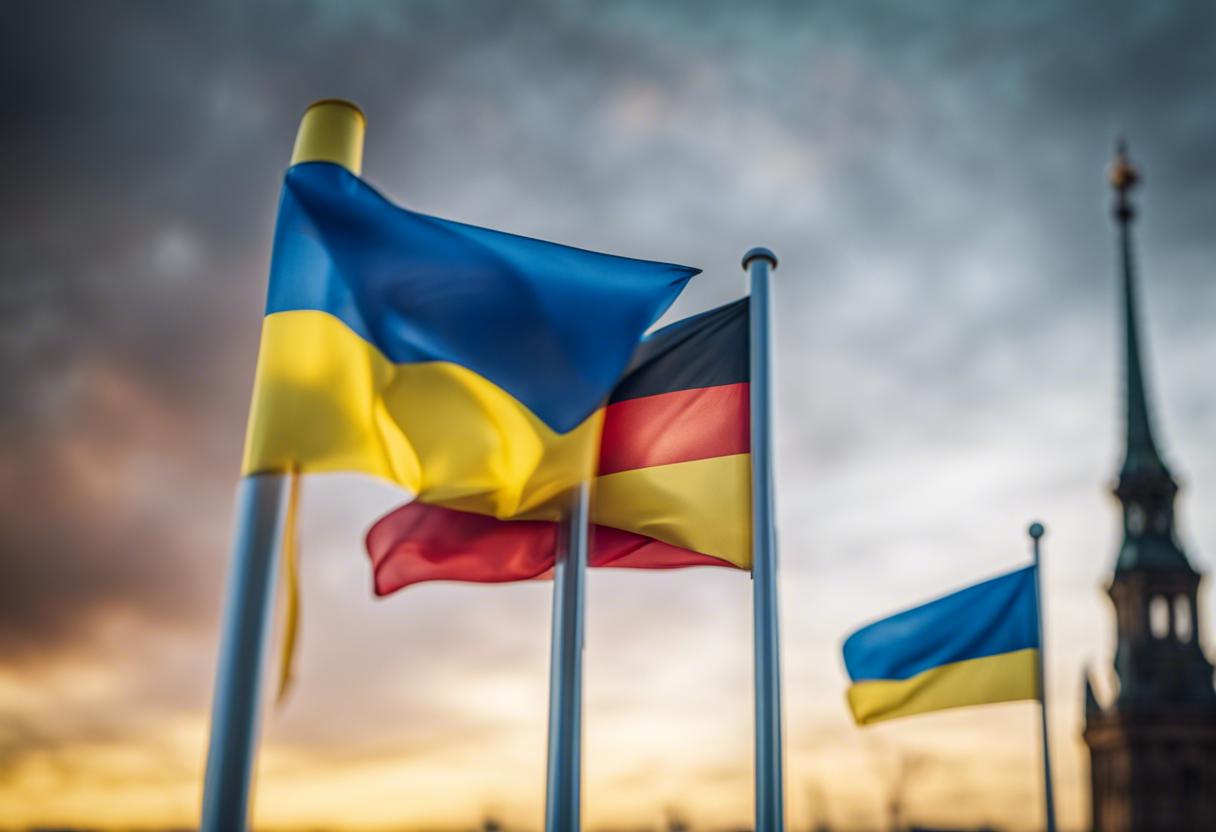Almost a year passed before Olaf Scholz, the German chancellor, responded to Kyiv’s most pressing plea for assistance in the war. In response to Russia’s total invasion of Ukraine in February 2022, Berlin swiftly dispatched helmets, medical provisions, and light weapons. However, it was not until January 2023, after numerous flat refusals, that Germany transported its initial batch of tanks.
As it stands, Germany is currently Ukraine’s second-largest provider of weaponry and has endowed them with 18 Leopard 2 combat tanks and 120 Marder vehicles. This generous donation of tanks signifies the most radical reform in Germany’s postwar strategic perspective, known as the “Zeitenwende” or watershed.
The notion of German military personnel or tanks ever stepping foot on Russian territory once more has been traditionally taboo due to the “Nie wieder” or the ‘never again’ concept, a narrative that places equal recognition on the lives of exterminated European Jews and Russian citizens across multiple decades.
This week, images emerged showing at least three Marder vehicles making their way into Russia’s Kursk region, igniting waves of worry and polarising political viewpoints in Germany. While Chancellor Scholz, who is currently on holiday, has refrained from commenting, a government spokesperson communicated that Berlin is aware of the conflicting reports.
In May, Berlin underwent its latest significant strategic shift when it withdrew its opposition to Ukrainian troops utilising German-provided weapons to hit targets within Russia’s borders.
Although there’s no independent verification, the images of the Marder have spurred a split of opinion within Scholz’s ruling coalition. Left leaning members of his Social Democratic Party claim to be in the dark about such an intrusion being authorised with German vehicles. Marcus Faber, from the liberal Free Democratic Party and junior coalition partner, doesn’t see an issue with the Marders entering Russian territory. As head of the Bundestag defence committee, Faber asserts that once handed over to Ukraine, the weapons are considered Ukrainian, and this applies to all equipment, including tanks.
The conflict between Russia and Ukraine has transformed the territories of both nations into a battlefield, with their respective weapon usage regulated by international law. Russia’s recent display of German tank remnants seized in Ukraine, exhibited in an open-air war trophy showcase in Moscow, is not its first interaction with German military machinery. Recent warnings from Russian leader, Vladimir Putin, stress that the activation of western, notably German weaponry, against Russia would constitute a precarious move.
Munich’s Bundeswehr Armed Forces University’s Professor Carla Masala anticipates that the alleged prescence of Marder tanks on Russian territory will provoke ire from Putin. Still, she believes Putin’s response will be restrained. The topic of military aid for Ukraine and its financial repercussions are generating policy disputes in Saxony and Thuringia, two eastern German states set to elect new parliaments on September 1st.
Saxony’s premier, Michael Kretschmer, stepped out of line from his Christian Democratic Union (CDU) counterparts last Friday. Aiming for re-election, he argued for a halt on German military support for Ukraine and advocated for defence budget cuts in favour of social welfare. The CDU, with a slight edge in the polls at 34%, is feeling pressure from the Alternative for Germany party, which has a four-point deficit but is gaining traction with its pro-Russian stance and promises for peace.
Meanwhile, the BSW, a new political party led by pro-Russian, left-leaning politician Sahra Wagenknecht, is also drawing CDU supporters. Wagenknecht recently described recent Marder incursions as a significant breach, highlighting the heightened risk of a significant European conflict as Germany becomes increasingly embroiled in the war.
The BSW has seen rapid growth in support, now reaching 11% in Saxony, potentially proving a major influence in the forthcoming election. Nonetheless, the party led by Wagenknecht is facing considerable opposition, notably over its stance on Russia.
Many, like Marianne Birthler, a prominent former civil rights activist in East Germany, accuse the BSW of echoing Kremlin views when it comes to their policies on Ukraine.
Meanwhile, Germany finds itself once again embroiled in a contentious discussion surrounding the provision of military aid to Ukraine. The controversy coincides with defence manufacturer Rheinmetall, the brand behind Leopard and Marder tanks, announcing a robust 49% increase in year-on-year turnover, which reached €2.2 billion.
Armin Papperger, CEO of Rheinmetall, expressed his optimism over the company’s growth, anticipating an additional €1 billion in turnover in the current and upcoming years. The company attributes this record-breaking performance largely to its dealings with the German armed forces, partner states within the EU and NATO, and its support of Ukraine.

